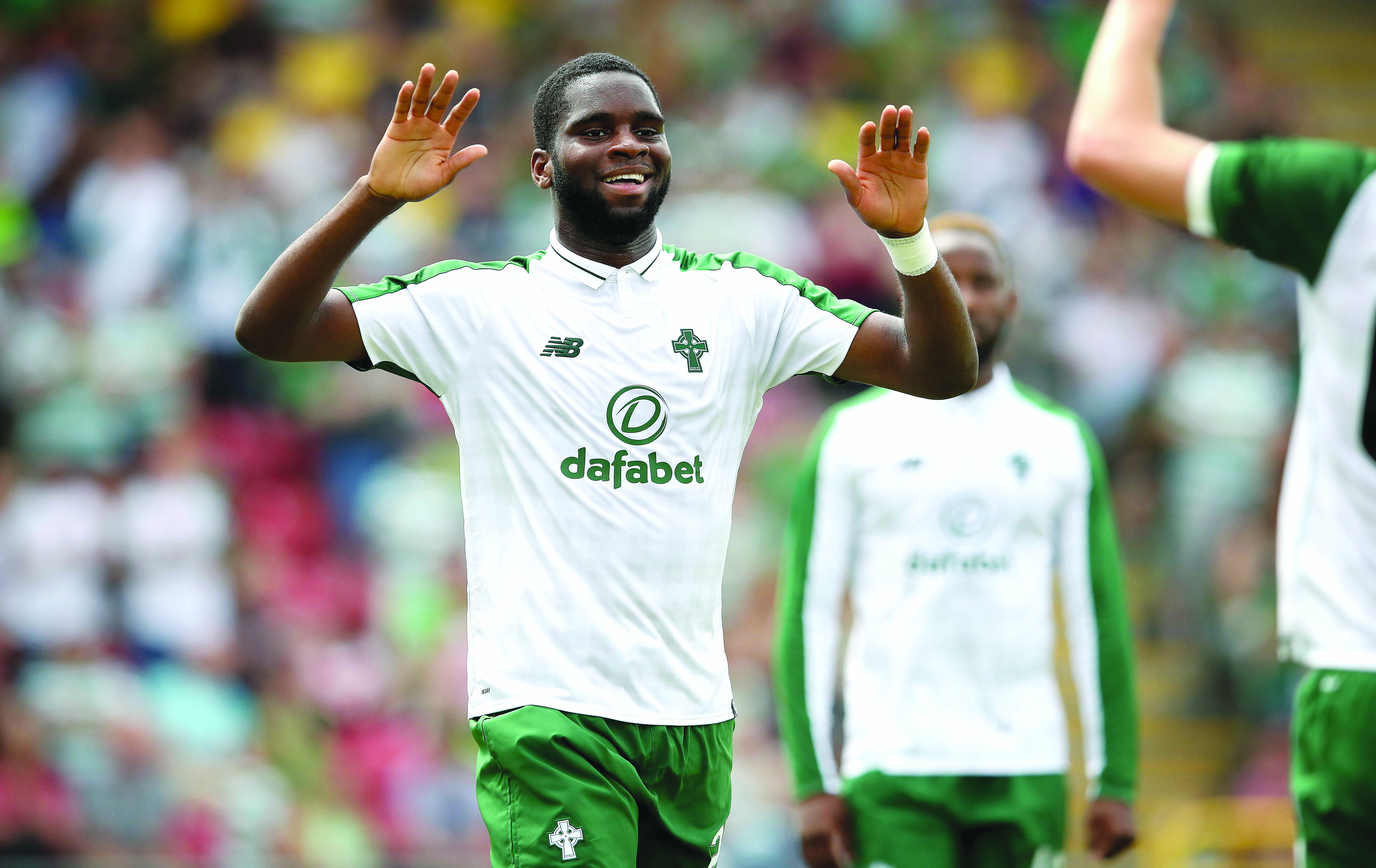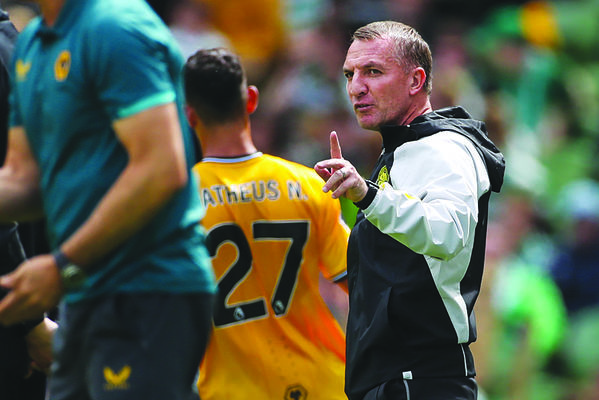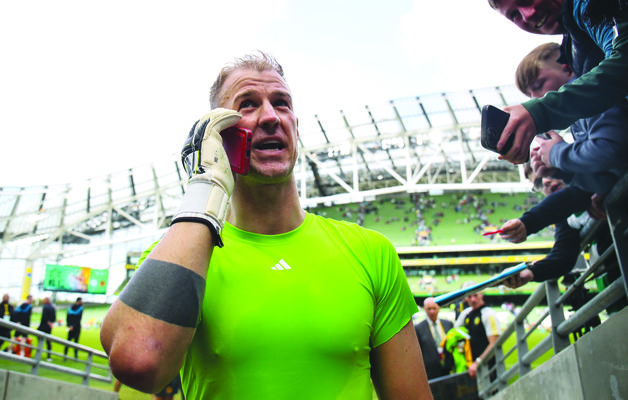AS we wait for action to resume on the pitch following the international break, let’s have a look at how things are shaping up on the financial front for Celtic.
Last month, the club announced £76.5m in revenue for the six months until December 31, 2022, which was a 44.8 per cent increase on the previous year’s figure. The accounts also showed a pre-tax profit of £33.9m.
Peter Lawwell, now chairman after previously serving as CEO for 17 years, put the healthy numbers down to participation in the group stages of the Champions League.
This week it also emerged that the Hoops are on course to announce revenue of £112m for the year ending June, 2023.
A private financial analysis from Canaccord Low outlined that this would be a record amount for Celtic and highlights the huge gap that exists between the Bhoys and the rest of Scottish football.
David Low, formerly one of Fergus McCann’s key men in 1994, told the Graham Spiers Podcast: “First of all, the numbers posted by Celtic in their interim accounts were fantastic.
“Should Celtic hold on to their nine-point lead in the Premiership, that looks like being matched or more likely bettered next season because winning the title will see them automatically qualify again and there is an extra group match in the new-look Champions League.
“The outlook for Celtic is compelling and gives the club the opportunity to put that money to good use in Europe.”
🗣 "If you try to be someone else, to try to do it in a way that was successful or effective for somebody else, ultimately if that isn’t who you are, it’s not going to work."
— Celtic Football Club (@CelticFC) March 29, 2023
Watch Ange Postecoglou's exclusive interview on leadership in full 📽
We’ve said it many times in this column: Celtic’s primary objectives must be to make strides outside of Glasgow. It’s a gargantuan task given the riches that other teams possess, but this is a project that needs to be taken in stages.
Nobody is expecting Ange Postecoglou to win the Champions League.
Part one should be establishing the club as a regular in European football’s elite tournament.
Before this campaign, it had been five years since the Bhoys competed in the Champions League, which is far too long for a team that views itself as one of the biggest in the world.
The manager has spoken of his desire to compete regularly at that level, and with winning the Premiership now providing the path to automatic group stage football, it gives Celtic the platform to rebuild its European presence.
It also allows the management breathing space to plan budgets and to scout a certain quality of player which can improve the squad. In the past, when automatic qualification wasn’t secured, Celtic were guilty of a ‘wait and see’ approach in the transfer market.
As a result, they would go into qualifiers grossly under-prepared and would get dumped out by the likes of AEK Athens, Qarabağ and Maribor. It appears they have finally learned from these harsh lessons.
Postecoglou believes they must be “aggressive” in terms of recruits and selling, which has already been evident through the sales of Josip Juranovic and Giorgos Giakoumakis.
Celtic aren’t in the business of buying established stars, they can’t afford it.
The aim is easy, but the execution is much more difficult: search the world for up-and-coming prospects, bring them in for moderate fees, develop their talent for a few years and sell on for a hefty profit.
However, is there a ceiling for what another club will spend on a player based in Scotland?
Arsenal paid the Hoops £25m for Kieran Tierney, Crystal Palace forked out £16m on Odsonne Eduoard and even Calvin Bassey joined Ajax from Rangers for £20m.
Will we ever see someone leave for £30m, £40m, or even more? Again, this reiterates why Europe is so vital for Celtic.
Such huge amounts will only materialise when players shine at the top level. Bassey didn’t even start 30 league games for Rangers last season, but was pivotal in their run to the Europa League final. That’s where he caught the eye of Ajax and other clubs.
Tierney usually fared well in the Champions League and Europa League for Celtic, and has always been one of Scotland’s star men at international level.
Those with fat wallets won’t splash big on impressing in Scotland alone – Celtic must be regulars in Europe to maintain a viable player trading model.
Meanwhile, the resumption of domestic matters is upon us with a trip to Ross County on Sunday (kick-off 12pm).
The first meeting at Dingwall last August produced a 3-1 Hoops victory, and with the Staggies just two points off the bottom spot and only one win in their last six, it’s difficult to see the Celtic steam train coming to a halt this weekend.
A notice of complaint has been issued against Rangers Women's coach Craig McPherson following the apparent headbutt on Celtic boss Fran Alonso at the Old Firm game on Monday. pic.twitter.com/JImhNzDZzm
— Sky Sports News (@SkySportsNews) March 29, 2023
The last week hasn’t been short on drama, though. On Monday night, the derby between the Celtic and Rangers women’s sides descended into mayhem after Fran Alonso’s side secured a 99th-minute equaliser, with the game ending 1-1.
After the final whistle, Alonso was headbutted from behind by rival coach Craig McPherson.
The Celtic gaffer has insisted he will not seek a lengthy ban for the Ibrox hothead following the ugly scenes which were broadcast live on Sky Sports. He even claimed that the Rangers man called him a “little rat”.
It was a shameful move from McPherson, even if emotions were running high and he now faces a probe from the SPFL over the incident.
It was caught on camera and he really can’t put up much of a defence. Hopefully he’ll be hit with a considerably lengthy ban, but I wouldn’t hold my breath. The sooner this kind of embarrassing behaviour is eradicated, the better.
I thought the embarrassment of Steven Gerrard celebrating a charity game penalty like he won the English Premiership couldn’t have been topped this week, but McPherson came up trumps.









